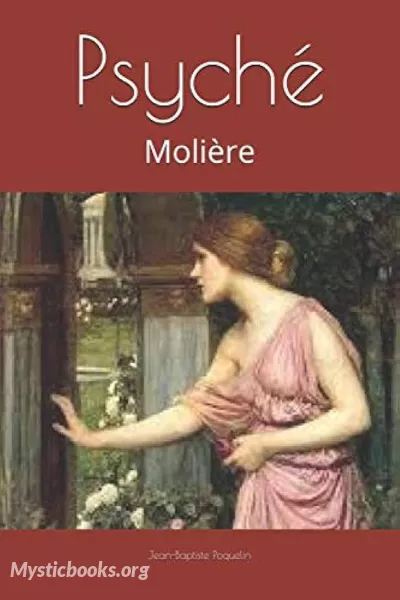
Psyche
by Moliere
'Psyche' Summary
In the realm of French literature, Molière stands as a towering figure, renowned for his witty comedies that satirized the follies and foibles of human nature. Among his masterpieces, Psyche, a captivating tale of love, enchantment, and self-discovery, stands out as a testament to his genius.
Inspired by a classical myth, Molière weaves a spellbinding narrative that interweaves the fantastical with the familiar. The story revolves around Psyche, a young woman of unparalleled beauty, who is captured by the enigmatic god Eros. In the depths of his palace, she is showered with love and affection, yet forbidden from ever laying eyes upon her mysterious lover.
As curiosity consumes her, Psyche, driven by an irresistible desire to behold her beloved, breaks the forbidden rule, unleashing a series of trials and tribulations. With each challenge, she embarks on a journey of self-discovery, facing her fears, confronting her vulnerabilities, and ultimately, finding the strength to defy convention and embrace her true destiny.
Molière's Psyche is a timeless allegory of love's transformative power, a tale that resonates with readers across generations. Through its captivating blend of comedy, romance, and philosophical musings, Molière explores the complexities of human relationships, the nature of true beauty, and the enduring quest for self-fulfillment.
In the opening scenes, we are introduced to Psyche, a young woman of exceptional beauty, who has captured the attention of the gods themselves. Her beauty is so renowned that she attracts the envy of her two elder sisters, who seek to undermine her happiness.
When a prophecy reveals that Psyche is destined to marry a monstrous creature, her sisters delight in her misfortune. However, fortune takes an unexpected turn when Eros, the god of love, falls deeply enamored with Psyche.
Eros, drawn to Psyche's inner beauty and gentle spirit, arranges for her to be transported to his enchanted palace. There, he showers her with love and affection, providing her with every imaginable comfort and pleasure. However, there is one condition: Psyche must never attempt to see his face.
Initially, Psyche is content to live in this state of blissful ignorance. However, the forbidden knowledge begins to gnaw at her curiosity. Egged on by her envious sisters, she devises a plan to reveal her lover's identity.
One night, as Eros lies sleeping, Psyche lights a lamp and steals a glimpse of his face. To her astonishment, she discovers not a monstrous creature, but a god of unparalleled beauty. Overwhelmed by love and admiration, she leans in to kiss him, but a drop of hot oil from the lamp awakens Eros.
Enraged by her disobedience, Eros abandons Psyche, leaving her alone and heartbroken. Devastated by the loss of her beloved, Psyche embarks on a perilous journey to find and win back his love. Along the way, she encounters a series of trials and tribulations, each testing her resolve and forcing her to confront her deepest fears and insecurities.
Through these challenges, Psyche grows in strength and self-awareness. She learns to trust her own instincts, to defy those who would seek to undermine her, and to embrace her true worth. Finally, she confronts Venus, the jealous goddess who has been orchestrating her misfortune, and emerges victorious.
With Venus's approval, Psyche is reunited with Eros, and they are eternally united in a marriage of love and mutual respect. Psyche concludes with a celebration of their love, a testament to the enduring power of true affection and the transformative potential of self-discovery.
Book Details
Authors

Moliere
France
Jean-Baptiste Poquelin known by his stage name Molière was a French playwright, actor, and poet, widely regarded as one of the greatest writers in the French language and world literature. His...
Books by MoliereDownload eBooks
Listen/Download Audiobook
- Select Speed
Related books
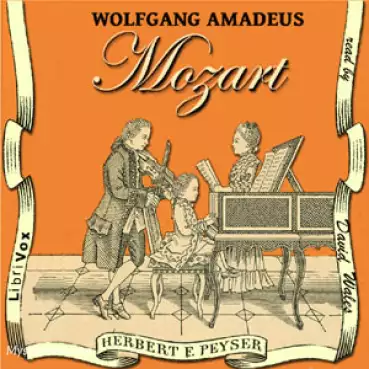
Wolfgang Amadeus Mozart by Herbert Francis Peyser
Mozart’s earthly career was so poignantly short yet so filled with incalculable achievement that the author of this booklet finds himself confronted w...

Orra by Joanna Baillie
"Orra is a young woman who is cursed with the power of second sight. She can see into the future, but her visions are often dark and disturbing. Orra...

Little Eyolf by Henrik Ibsen
Little Eyolf tells the story of the Allmers family. At the outset of the play, the father, Alfred, has just returned from a trip to the mountains. Whi...

Dream Psychology by Sigmund Freud
From the dawn of human consciousness, dreams have always fascinated us. Do they mean something? Do dreams help us see into the future? These questions...
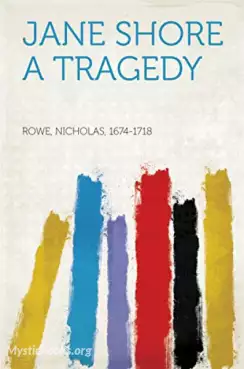
Jane Shore: A Tragedy by Nicholas Rowe
Covering some of the plot of Shakespeare's Richard III, Jane Shore focuses on the mistress of the late Edward IV, also known as "The White Queen". In...
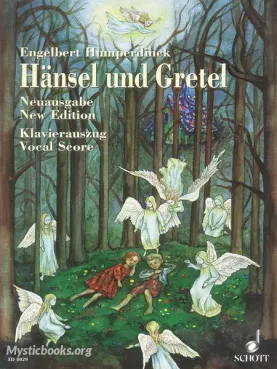
Hänsel and Gretel: A Fairy Opera in Three Acts by Adelheid Wette
Step into a magical world where breadcrumbs guide the way and a wicked witch awaits in the enchanting opera, "Hänsel and Gretel: A Fairy Opera in Thre...

The Soul of Man by Oscar Wilde
The Soul of a Man is a 2003 documentary film, directed by Wim Wenders, as the second instalment of the documentary film series The Blues, produced by...
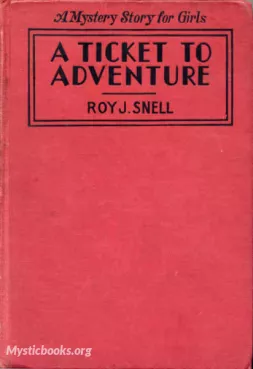
A Ticket to Adventure by Roy J. Snell
It is the the thrilling young adult fiction novel. Which was published in 1924, it tells the story of a group of teenagers who embark on a dangerous j...

The Master Builder by Henrik Ibsen
Henrik Ibsen's The Master Builder, first published in 1892, is about architect Halvard Solness, who despite personal tragedy (including the death of h...
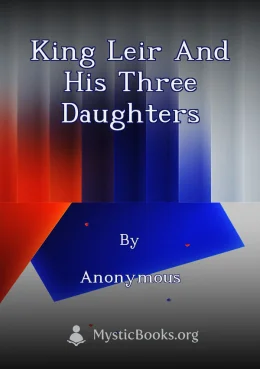
King Leir and His Three Daughters by Anonymous
King Leir is an anonymous play that tells the story of the legendary British king Leir and his three daughters. The play was written in the late 16th...
Reviews for Psyche
No reviews posted or approved, yet...